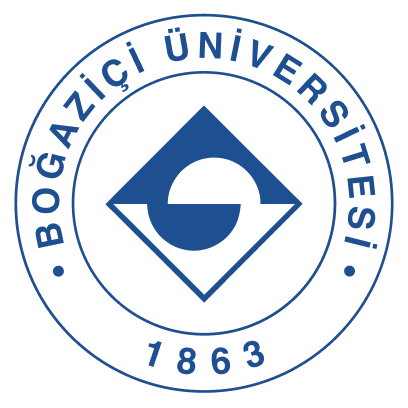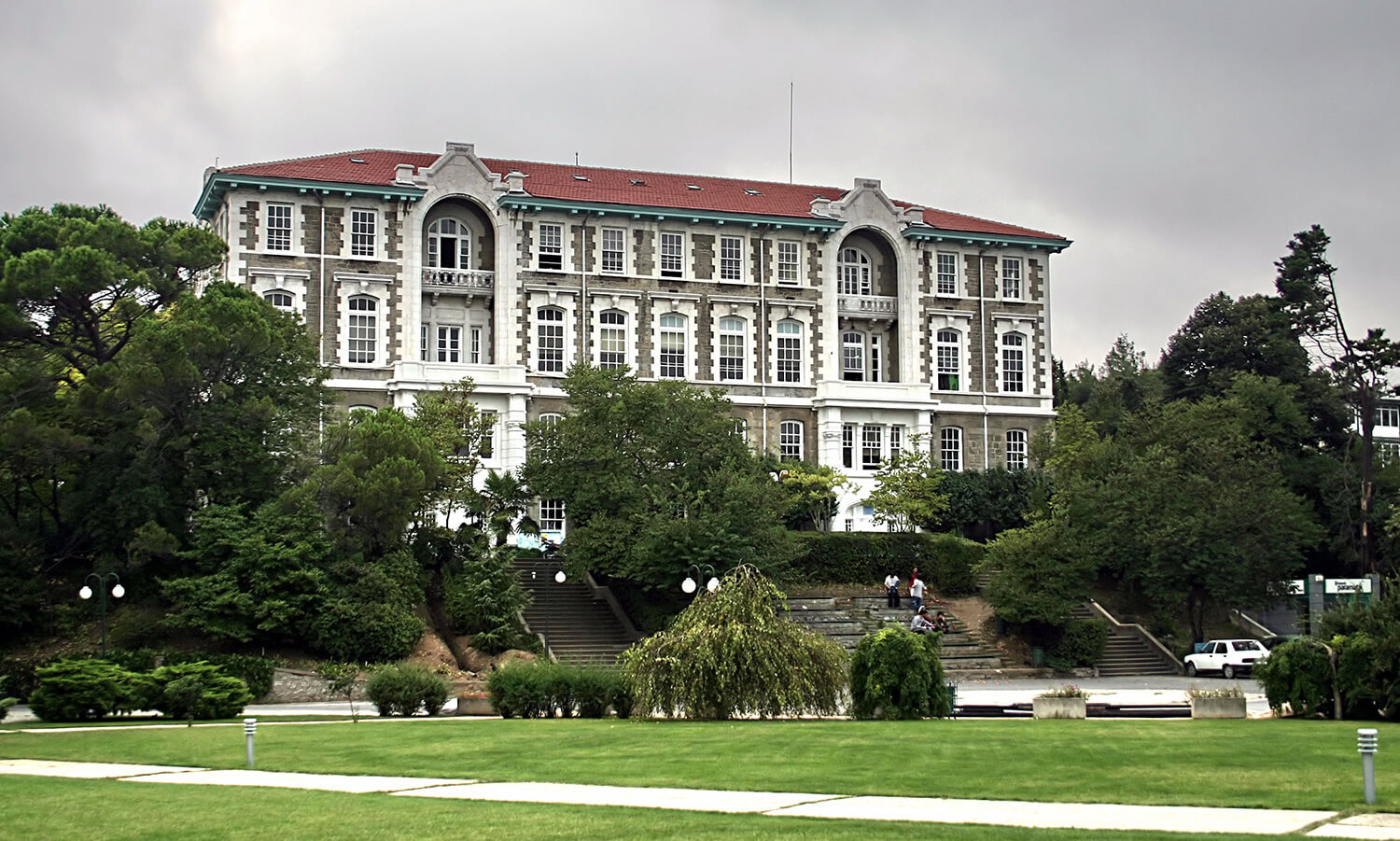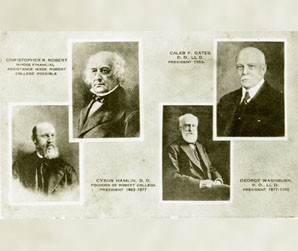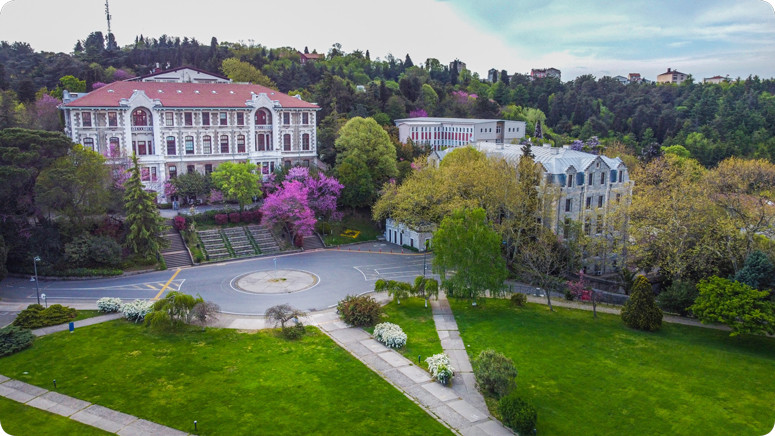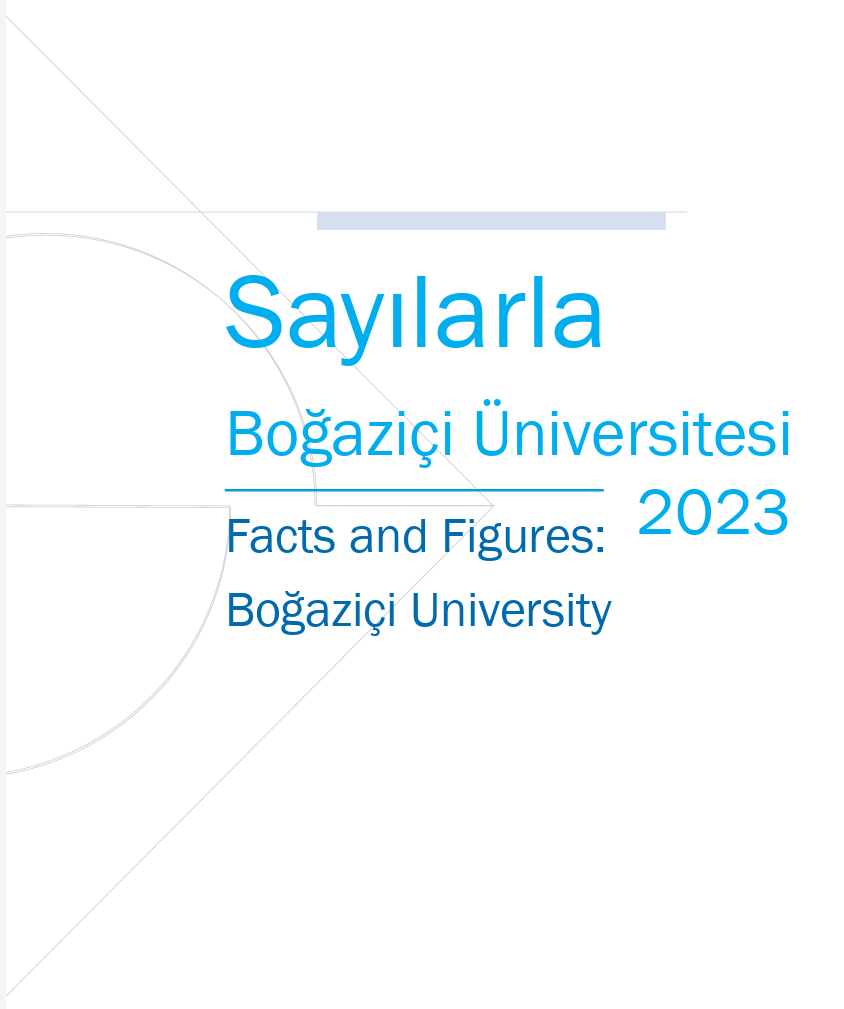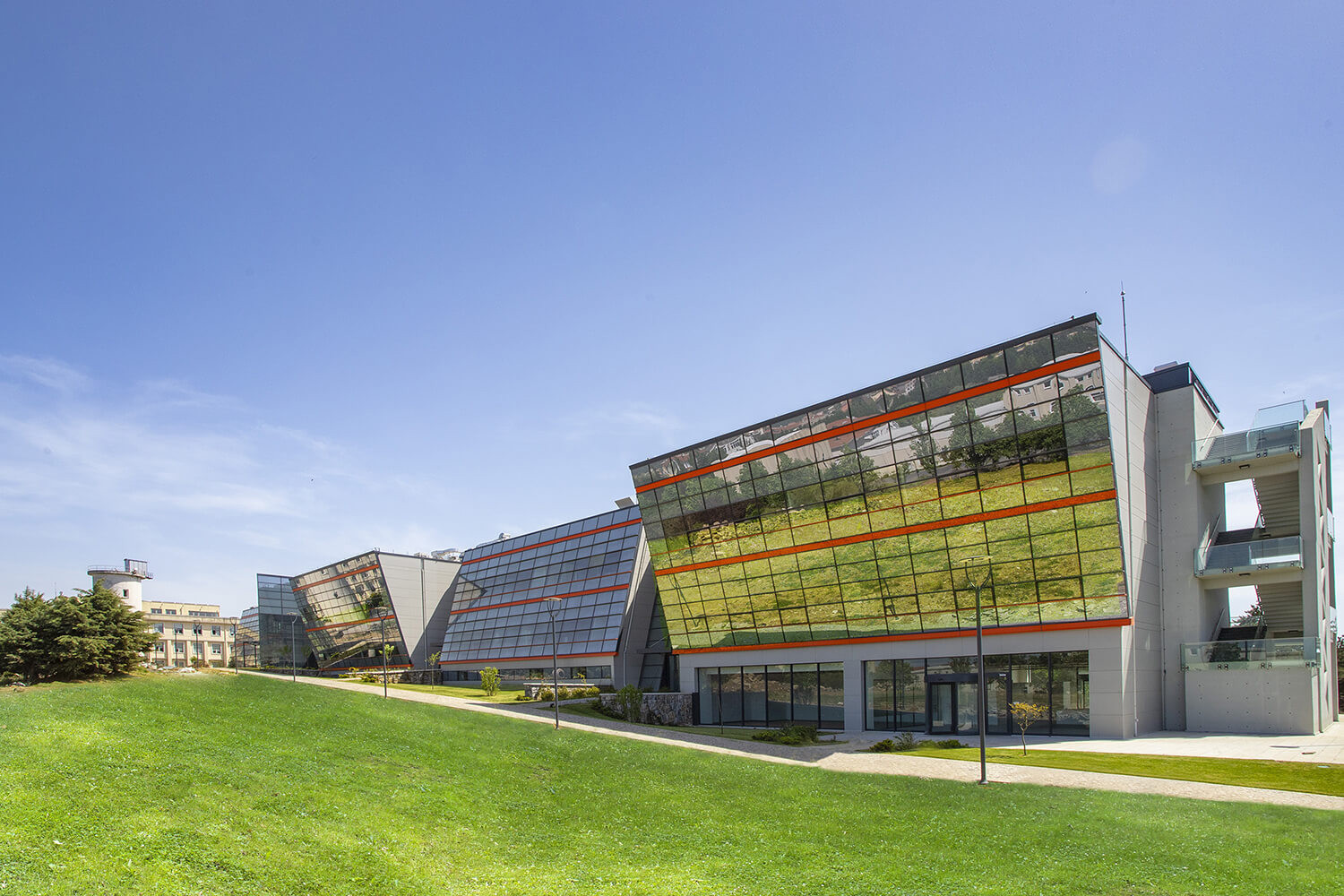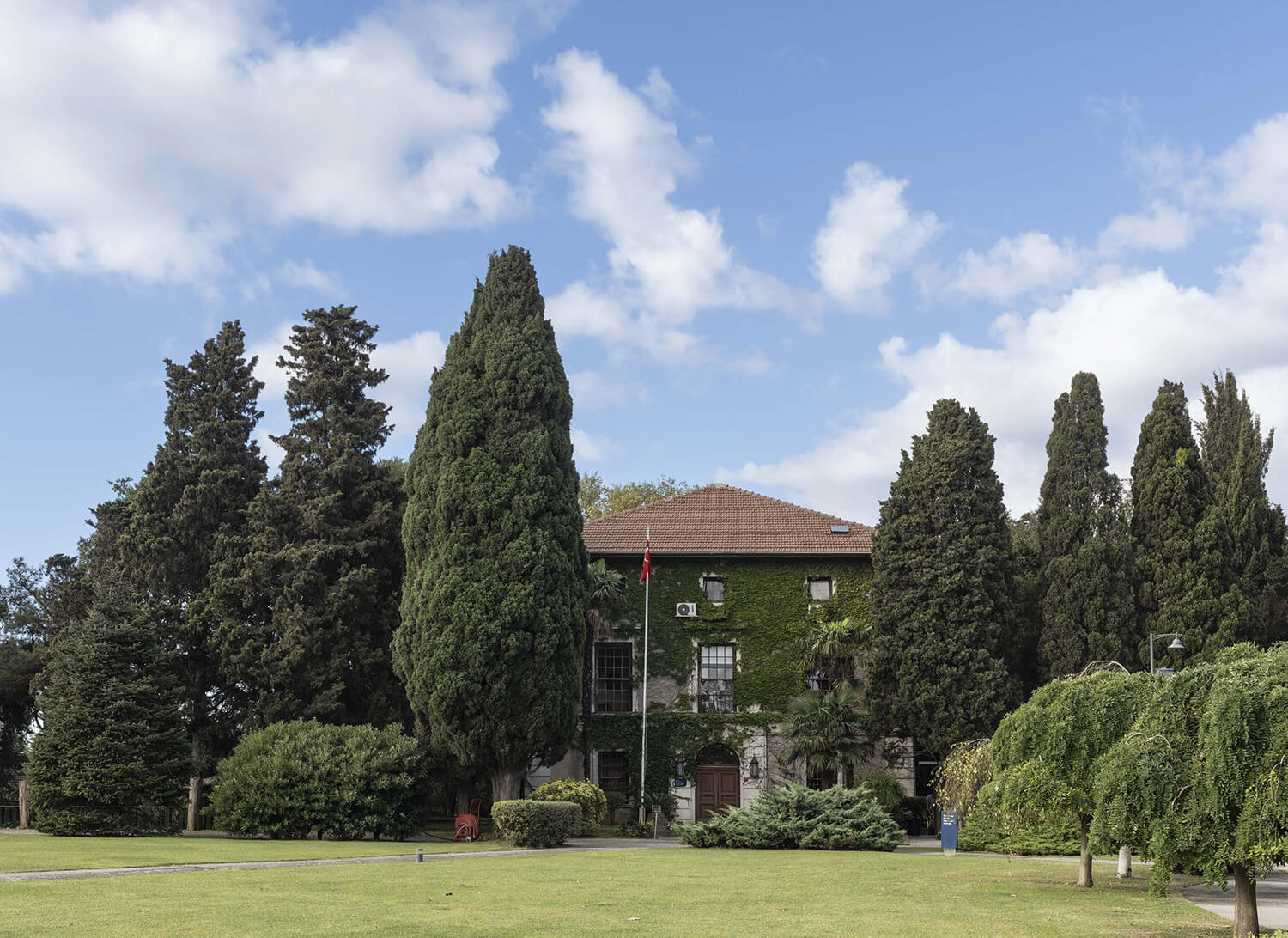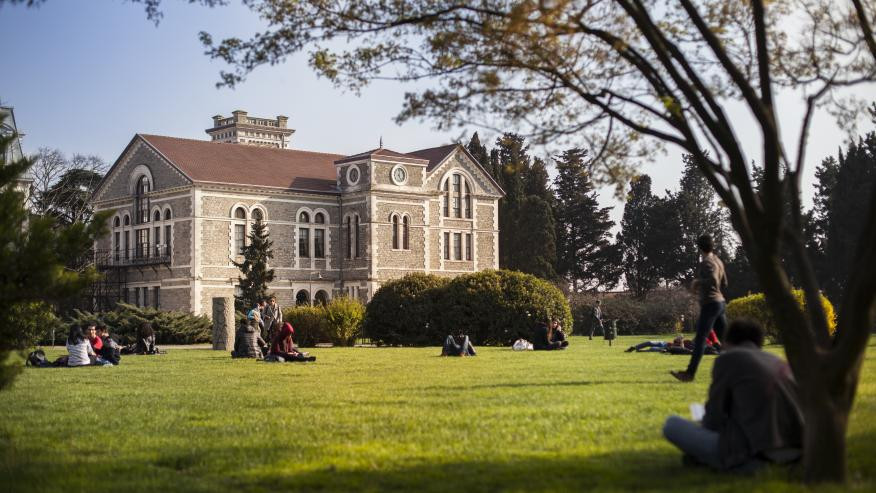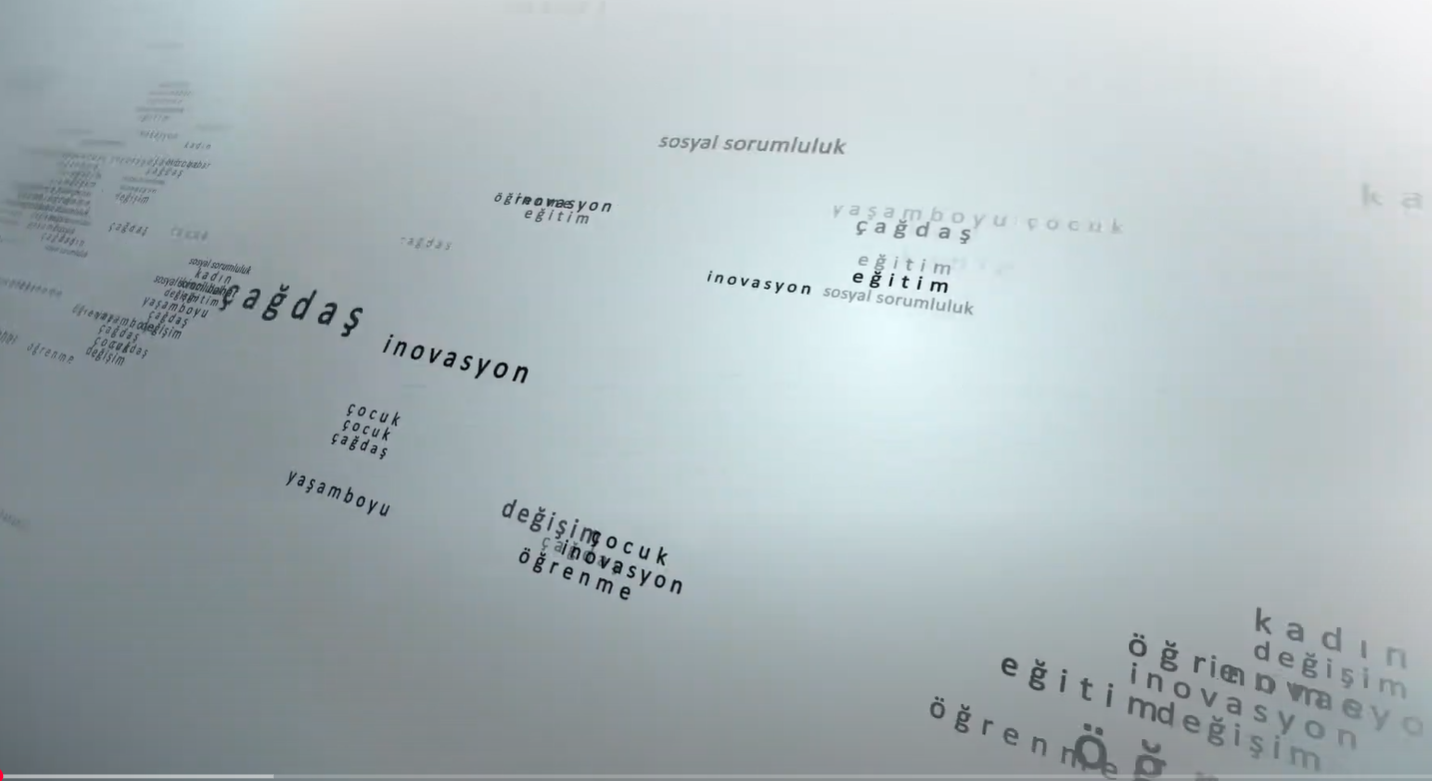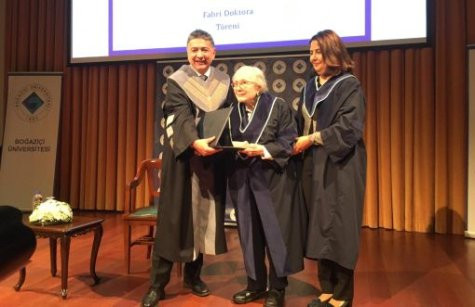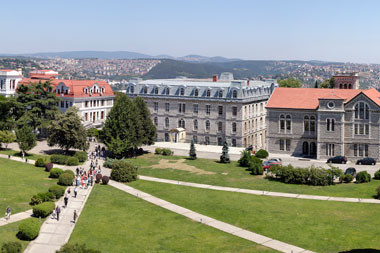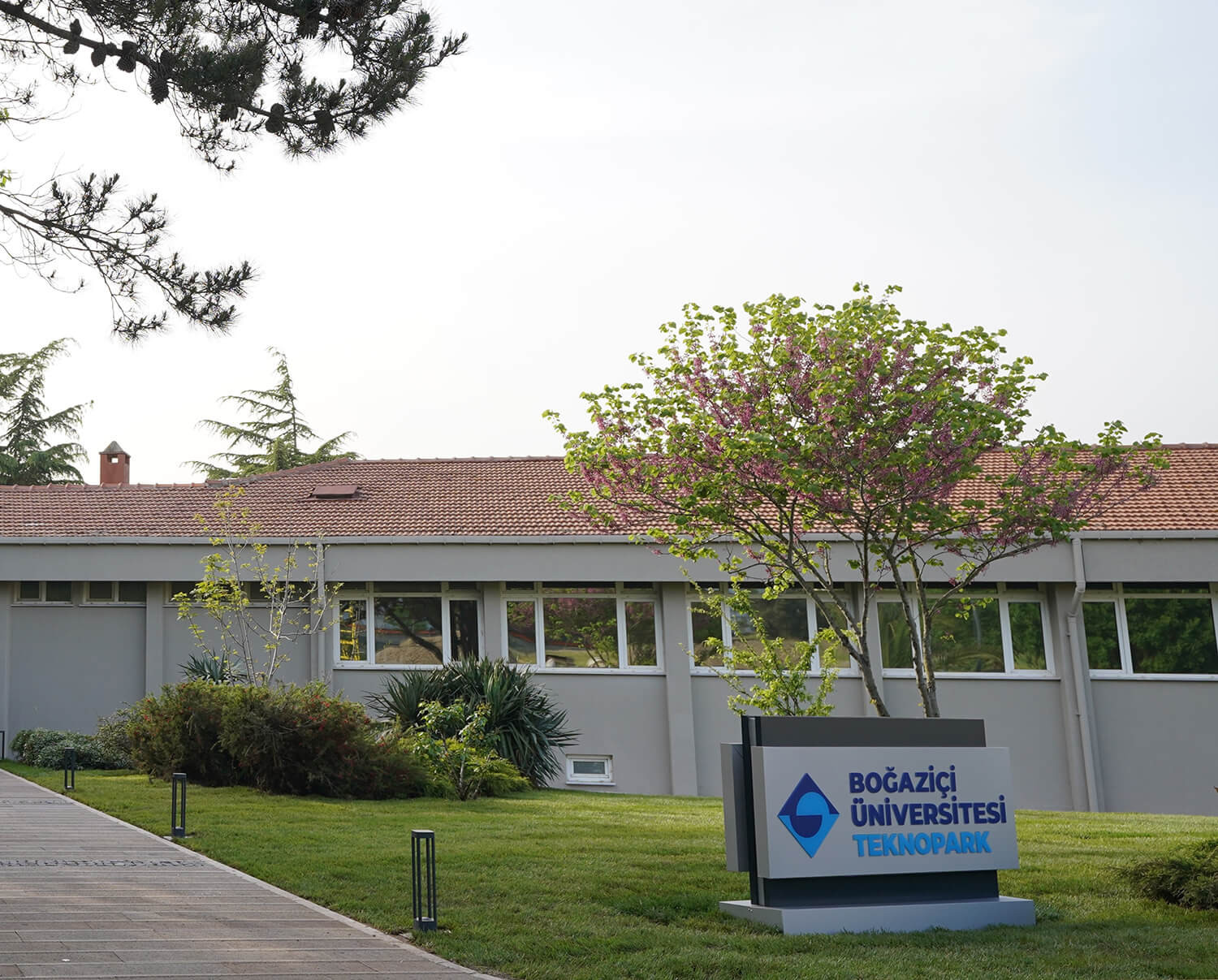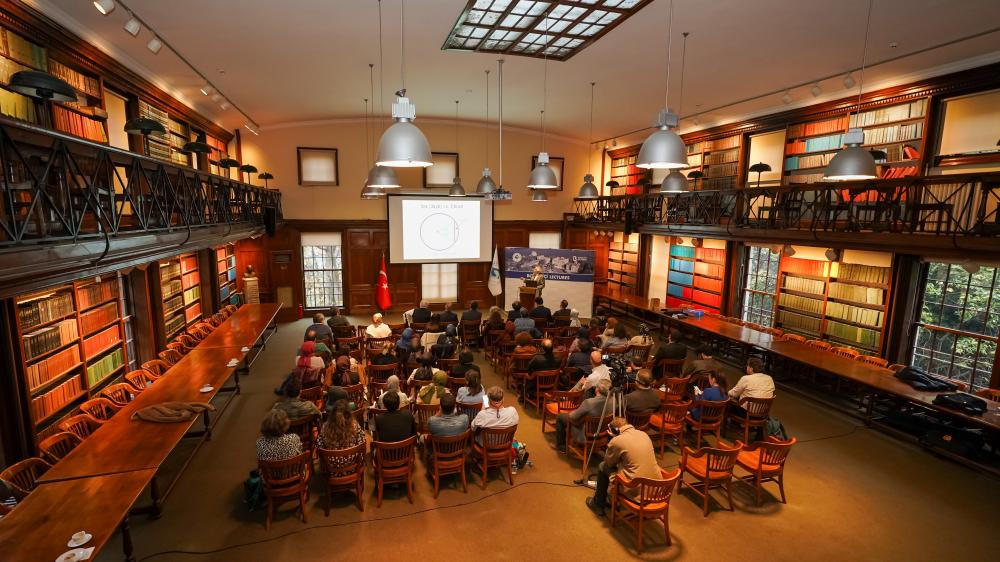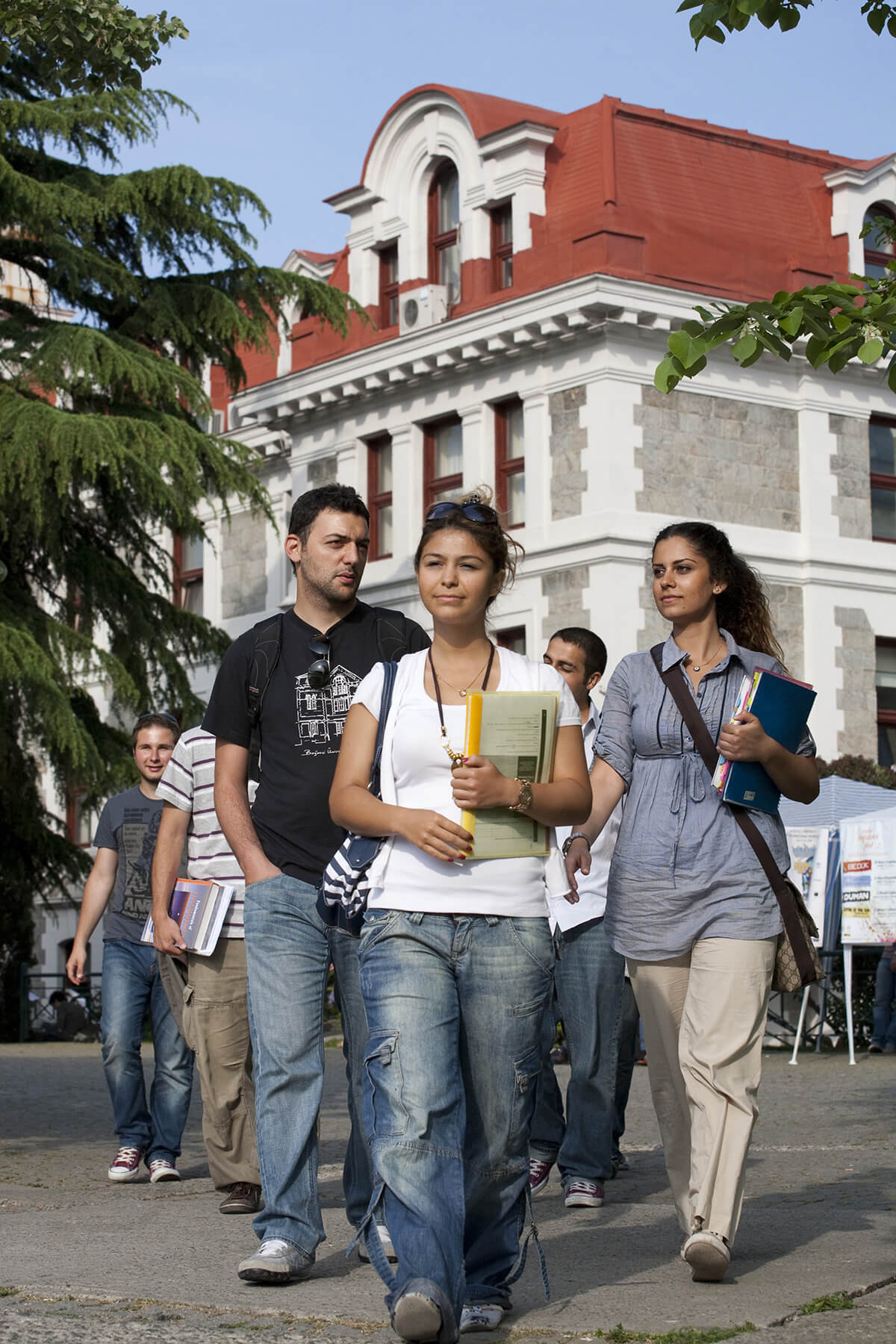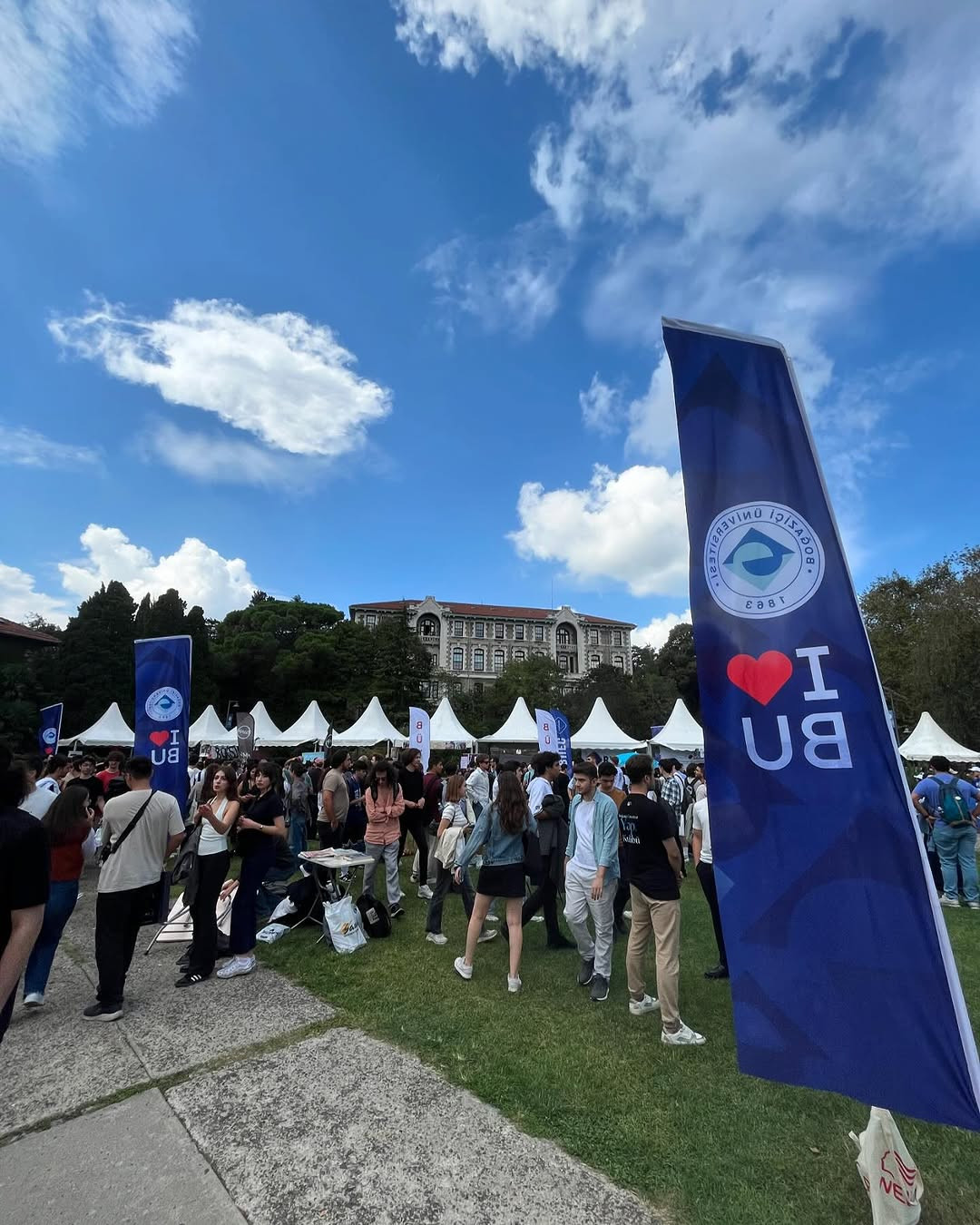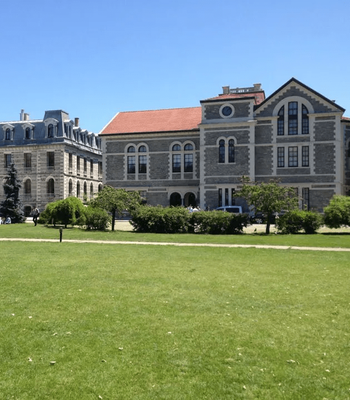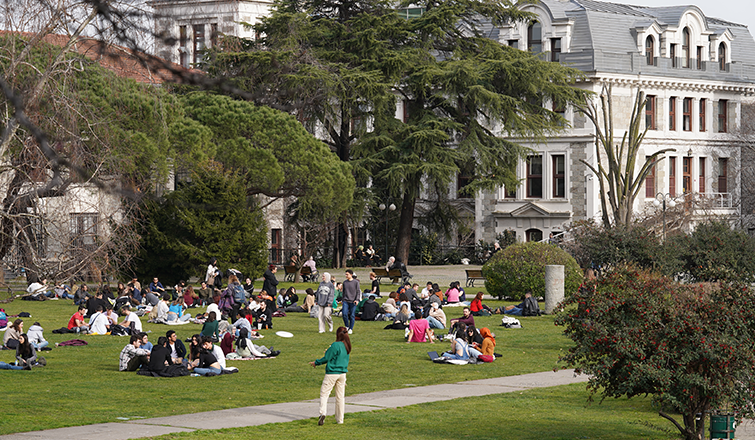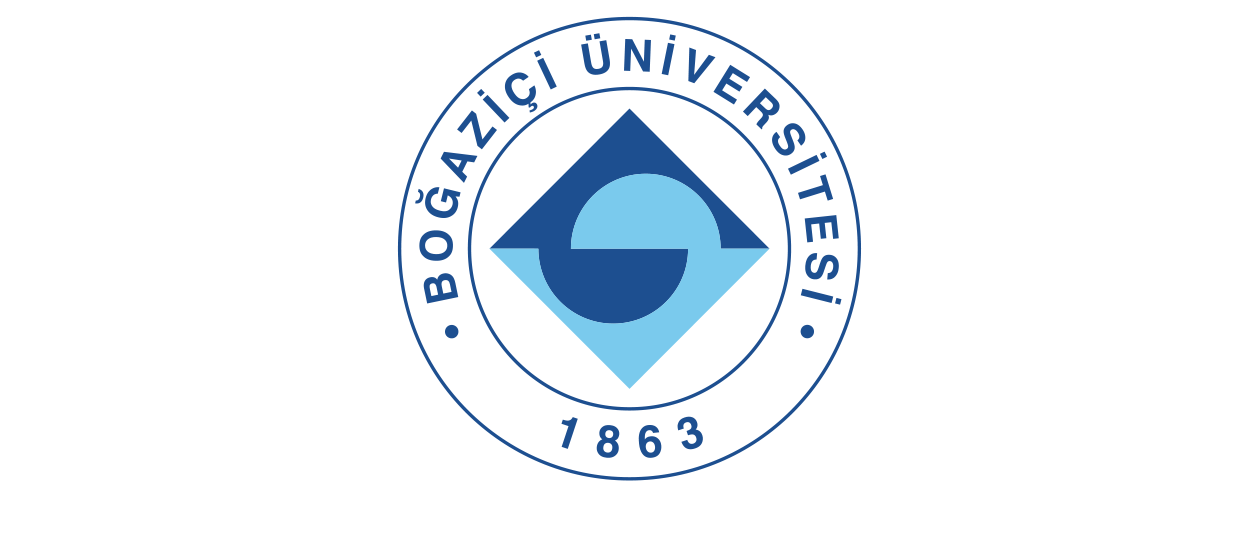ESC 500 On Site Training (0+1+0) ECTS 2
(Teknik Gezi)
Visit to water and wastewater treatment plants, sanitary landfills, incinerators, etc. where students will be provided with technical information as well as crucial and practical aspects of pollution control methods.
ESC 501 Principles of Environmental Pollution (3+0+0) 3 ECTS 8
(Çevre Kirliliğinin Prensipleri)
Principles of ecology, nutrient cycles; water pollution, quality parameters, standards and regulations; reaction kinetics and materials balance in aquatic systems; hydraulic models, batch, complete mix and plug flow reactors; water quality in rivers, streams and lakes; principles of water and waste water treatment; hazardous wastes and disposal methods with emphasis on solid waste and sludge; Environmental Risk Assessment; air pollution and control; global environmental problems.
ESC 503 Transport of Pollutants in the Environment (3+0+0) 3 ECTS 8
(Çevrede Kirletici Madde Taşınımı)
Introduction to fate and transport processes in the environment. Pollutant distribution among phases; solubility, volatilization, adsorption. Equilibrium partitioning among different phases; fugacity modeling. Modeling of physical transport mechanisms; advection, molecular diffusion, dispersion. Application of transport processes to surface waters, the subsurface and the atmosphere. Air-water exchange, non-aqueous phase liquids.
ESC 504 Computational Methods in Environmental Analysis (3+0+0) 3 ECTS 8
(Çevre Analizinde Hesaplama Esasları)
Review of numerical techniques used in the solution of ordinary and partial differential equations; principles of finite difference and finite element methods; linear and non- linear systems; stability and convergence. Error estimation. Current statistical methods for environmental data analysis. Computer applications.
ESC 505 Public Health and Environment (3+0+0) 3 ECTS 8
(Halk Sağlığı ve Çevre)
Introduction to epidemiology. Communicable diseases and routes of transmission. Drinking water quality. Water and wastewater pollution. Greywater and blackwater disposal. Swimming pool and recreational water sanitation. Public health sanitation. The air environment and noise pollution. Radiation effects. Emerging issues in environmental public health.
ESC 509 Resource Conservation for Energy, Fuel and Chemicals (3+0+0) 3 ECTS 8
(Enerji, Yakıt ve Kimyasallar için Kaynak Korunumu)
Energy and the material resources of the Earth. Impacts of energy consumption on ecosystem quality, human health, and material welfare. Biomass and its potential as a substitute for fossil fuels. Processes for conversion of waste biomass to gaseous and liquid fuels and value-added chemicals. Integrated energy production systems from various forms of waste. Multidisciplinary approach in resource conservation and energy efficiency.
ESC 510 Groundwater Flow and Contaminant Transport (3+0+0) 3 ECTS 8
(Yeraltısuyu Akışı ve Kirletici İletimi)
Groundwater occurrence; aquifer properties; steady and transient flow in porous media; saturated/unsaturated flow; well hydraulics and pumping test analysis. Contaminant transport processes; groundwater remediation; numerical modeling; real life applications.
ESC 511 Environmental Biotechnology (3+0+0) 3 ECTS 8
(Çevre Biyoteknolojisi)
Basics of microbiology (phylogenetic tree, energy, carbon and e-acceptor sources, catabolism and anabolism, aerobic respiration, anaerobic respiration, and fermentation).. Stoichiometry and energetics of microbial reactions (partitioning of substrate in energy and cell growth reactions, e- equivalents and COD, biomass yield). Biological reactor types and processes. Microbial kinetics and mass balances (biomass growth and substrate utilization, sludge age, subdivision of organic matter and biomass, kinetics in different types of reactors). Inhibition of biological reactions (non-competitive, competitive, substrate, product inhibition, irreversible inhibition models) Biological processes in drinking water treatment. Biodegradation, microbial transformation, bioremediation (primary, secondary and co-metabolic substrate removal, detoxification, dehalogenation, bioremediation, abiotic removal) Microbial transformation of inorganics.
ESC 514 Water Quality Management (3+0+0) 3 ECTS 8
(Su Kalitesi Yönetimi)
Sources and uses of water; the hydrological cycle; physical, chemical and biological characteristics and methods of analysis. Water quality standards and global perspectives. Stoichiometry, reaction kinetics and material balances; reactor models in natural systems. Modeling of water quality by the "contaminant movement process" approach. Water quality in rivers, estuaries, lakes and reservoir systems. Introduction to water and wastewater treatment.
ESC 516 Water and Wastewater Treatment: Physicochemical Processes (3+0+0) 3 ECTS 8
(Su ve Atıksu Arıtımı: Fizikokimyasal Süreçler)
Mass balances, steady- and unsteady-state concepts, modelling with and without conversion of pollutants, reactor hydraulics. Flow equalization and neutralization. Coagulation and flocculation. Hardness removal. Settling. Filtration. Adsorption. Ion exchange. Heavy metal removal. Disinfection. Gas-liquid mass transfer, volatilization and gas stripping.
ESC 517 Water and Wastewater Treatment: Biological Processes (3+0+0) 3 ECTS 8
(Su ve Atıksu Arıtımı: Biyolojik Süreçler)
Microbial metabolism. Energy production, cell synthesis, microbial growth kinetics. Hydraulic flow regimes and reactor configurations. Wastewater composition, biomass and substrate fractionation. Modelling of completely-mixed and plug-flow activated sludge systems. Reactor types, kinetic relationships, SRT, loading, sludge production, oxygen requirements, settling. Biological Nutrient Removal (BNR): Nitrification, denitrification and biological phosphorus removal (BPR). Attached-growth treatment. Fundamentals of anaerobic wastewater treatment.
ESC 518 Fundamentals of Anaerobic Digestion Processes (3+0+0) 3 ECTS 8
(Havasız Çürütme Süreçleri)
Biochemistry, microbiology and kinetics of anaerobic digestion; influence of environmental factors and toxic substances; process monitoring and control. Anaerobic treatment processes and industrial applications; case studies with CFSTR, contact and upflow sludge-bed reactors, anaerobic filters, rotating biological contactors, carrier-assisted contact reactors, hybrid, expanded-bed reactors and fluidized-bed reactors. Start-up of anaerobic reactors; developments in reactor design.
ESC 519 Environmental Technology Laboratory (1+0+5) 3 ECTS 8
(Çevre Teknolojisi Laboratuvarı)
Laboratory practices in unit operations such as coagulation/flocculation/sedimentation, filtration and adsorption and in advanced chemical and biological processes, including activated sludge treatment, anaerobic digestion for biogas production and advanced oxidation.
ESC 520 Fundamentals of Environmental Sciences (3+0+0) 3 ECTS 8
(Çevre Bilimlerinin Temelleri )
Overview of environmental systems. Material and energy balances. Biochemical cycles. Ecosystems, population dynamics and biodiversity. Natural resources: Water, soil, food and energy related issues. Pollutants in the environment and their origins. Pollution prevention and treatment technologies. Environmental management, risk and sustainability assessment concepts and methods.
ESC 521 Air Pollution and Modeling (3+0+0) 3 ECTS 8
(Hava Kirliliği ve Modellemesi)
Causes, sources, chemistry and pollutional parameters of air pollution. Solar radiation and absorption. Energy balance for the Earth and its atmosphere. Temperature and pressure profiles. Atmospheric stability. Meteorological modeling. The atmosphere as a medium of transport. Turbulence and atmospheric diffusion. Dry and wet deposition. Gaussian models in air pollution assessment. Eulerian and Lagrangian dispersion models. Urban air pollution modeling. Long range air pollutant transport modeling.
ESC 522 Environmental Pollution Control (3+0+0) 3 ECTS 8
(Çevre Kirliliği Kontrolü )
Sources and types of pollutants in the environment. Impacts of pollution on the environment and human health. Pollution monitoring. Control of gases. Water pollution control techniques. Soil and groundwater remediation technologies.
ESC 524 Water Reuse (3+0+0) 3 ECTS 8
(Suyun Tekrar Kullanımı)
Current status of global water shortages. Water reclamation and reuse potential. Health and environmental concerns. Characteristics of municipal wastewater and related health issues. Emerging contaminants. Water reuse regulations and guidelines. Water reuse technologies. Removal of trace constituents. Potential applications of reclaimed water.
ESC 525 Biogas Engineering (3+0+0) 3 ECTS 8
(Biyogaz Mühendisliği)
Introduction to biogas engineering; Fundamentals of anaerobic digestion process. Environmental and operational parameters and substrates for biogas production. Process design. Planning, safety and economy of biogas plants. Preparation and use of biogas. Use of digestate.
ESC 526 Chemistry for Water and Wastewater Engineering (3+0+0) 3 ECTS 8
(Su ve Atıksu Mühendisliği için Kimya)
Concepts from general, physical, equilibrium, colloidal and organic chemistry. Chemical fundamentals of aeration, oxidation, precipitation, complexation, coagulation, flocculation, ion exchange, sorption and disinfection processes. Main water quality parameters and their analysis.
ESC 527 Environmental Modeling (3+0+0) 3 ECTS 8
(Çevre Modellemesi)
Deterministic, stochastic and predictive models used in environmental analyses. Model construction, calibration and verification. Modeling methodologies for different environmental systems, such as lakes, rivers, estuaries and watersheds. Common environmental models and model applications.
ESC 528 Drinking Water Disinfection (3+0+0) 3 ECTS 8
(İçme Suyu Dezenfeksiyonu)
Water and its properties, drinking water standards, drinking water and health, disinfectants and theory of disinfection, application of disinfection practices to drinking water, conventional methods of disinfection, novel methods of disinfection, formation and control of disinfection byproducts.
ESC 530 Research Methods for Environmental Scientists (3+0+0) 3 ECTS 8
(Çevre Bilimciler için Araştırma Yöntemleri )
Introduction to research and the research process. Research Design. Quantitative research, study designs and methods. Analysis and interpretation of quantitative data. Applications of quantitative research. Qualitative research, study designs and methods. Analysis and interpretation of qualitative data. Applications of qualitative research. Mixed methods research, study designs and methods. Applications of mixed methods research. Data visualization. Research ethics and integrity.
ESC 531 Urban Waste Management (3+0+0) 3 ECTS 8
(Katı Atık Yönetimi)
Types, quantities and sources of solid wastes collection, storage, transfer and transport. Disposal alternatives: landfills, incineration, composting. Integrated solid waste management; legislative aspects; solid waste management by source reduction and recycling; policy development for source reduction and recycling in communities.
ESC 534 Landfill Leachate Treatment Techniques (3+0+0) 3 ECTS 8
(Çöp Sızıntı Suyu Arıtma Teknikleri)
Effects of landfills on water quality; quantities and characteristics of leachate produced by landfills; parametric considerations of landfill stabilization; effect of recirculation on landfill stabilization and leachate quality; on-site leachate treatment plant design and operation.
ESC 535 Composting Technologies (3+0+0) 3 ECTS 8
(Kompostlaştırma Teknolojileri)
Theory and principles of composting; methods and operations. Anaerobic methods for municipal solid wastes; procurement and evaluation; marketing. Odor management, public health issues, beneficial uses of compost.
ESC 536 Renewable Energy Sources and the Environment (3+0+0) 3 ECTS 8
(Yenilenebilir Enerji Kaynakları ve Çevre)
Introduction to renewable energy. The current renewable energy market. Past and present energy resources. Resource prospects for the future. The role of environmental and social issues. Renewable energy resources. Bioenergy conversion processes. Environmental impacts of renewable energy sources.
ESC 539 Environmental Governance (3+0+0) 3 ECTS 8
(Çevre Yönetimi)
Human action and the environment. Institutions. Theories of motivation for human actions. Different environmental governance systems and structures. Multi-level and cross-scale governance. Global and regional environmental governance. International environmental negotiations (UNFCCC, CBD, UNCCD). Science in international environmental governance (IPCC, IPBES). Environmental policy instruments. Institutions for environmental governance. Governance of commons. Actors and participation in global environmental governance. Environmental justice and ecological distribution conflicts. Environmental governance in Turkey.
ESC 540 Ecosystem Modeling (3+0+0) 3 ECTS 8
(Ekosistem Modellemesi)
Ecosystems as objects of research. Social-ecological systems (SES) and complexity science. Origins of complexity. Features and behavior of complex adaptive systems. Implications of CAS in SES. Concepts in modeling. Modeling elements and processes. Types of models and model complexity. Examples of ecosystems modeling such as modeling decision making and its application in SES research. Coupled models in SES.
ESC 541 Environmental Economics (3+0+0) 3 ECTS 8
(Çevre Ekonomisi)
Economic foundations of the degradation of the environment and the depletion of nonrenewable resources; economic implications of the solutions for environmental problems; monetary proxies for benefits and costs of environmental programs; instruments of environmental policy.
ESC 542 Ecological Economics (3+0+0) 3 ECTS 8
(Ekolojik İktisat)
Different Perspectives on the Economy-Environment Relationship. Economic growth and sustainable development. Biophysical reality. Power and politics. Value, ethics and human behaviour. Uncertainty, precautionary principle and post-normal science. Environmental accounting. Environmental indicators. Social multi-criteria evaluation. Further methods used in ecological economics. Degrowth. Sustainability transformation. Alternative ways of organizing economy-environment relationships.
ESC 545 Environmental Sociology (3+0+0) 3 ECTS 8
(Çevre Sosyolojisi)
Rural, urban and industrial sociology. Environmental problems affecting social structure. Basic demographic processes. Social sampling techniques, questionnaire design. Statistical methods in data evaluation. Utilization of computer software designed for social science data processing.
ESC 547 Environmental Law (3+0+0) 3 ECTS 8
(Çevre Hukuku)
National and international environmental policies and law. Legislation related to the transboundary movement of wastes. Case studies.
ESC 549 Climate Change Policy (3+0+0) 3 ECTS 8
(İklim Değişikliği Politikası)
Human activities and climate change. Greenhouse gases and global warming. Impacts of climate change and the relationship between sustainable development and climate change. Concepts of vulnerability, resilience and adaptive capacity. The role of governments in climate change discussions. Adaptation and mitigation strategies for developing and developed countries.
ESC 550 Instrumental Methods in Environmental Analysis (3+0+0) 3 ECTS 8
(Çevresel Analizlerde Kullanılan Enstrümental Yöntemler)
Instrumental methods of analysis of organic and inorganic chemicals/pollutants in water, air, soil and biological media. Basics of environmental sampling and analysis including sample preparation, liquid-liquid extraction, solid phase extraction, and solid-liquid extraction. Spectroscopic methods including atomic spectroscopy, atomic absorption and emission spectroscopy, X-ray spectroscopy, molecular spectroscopy, UV-VIS, luminescence and infrared spectroscopy; NMR spectroscopy; mass spectroscopy. Principles of chromatography including gas and liquid chromatography. Data analysis.
ESC 551 Environmental Chemistry (3+0+0) 3 ECTS 8
(Çevre Kimyası)
Topics related to the sources, reactions, transport, effects and fates of chemical species in water, soil and air environments. Properties of water and bodies of water in relation to the basic principles of chemistry. Aquatic microbial biochemistry principles. Composition and chemistry of the atmosphere. Particles in the atmosphere and air pollution. Composition and properties of soil in relation to soil pollution.
ESC 552 Chemistry for Environmental Sciences and Engineering (2+0+2) 3 ECTS 8
(Çevre Bilimleri ve Mühendisliğinde Kimya)
Basic concepts from general, physical, organic and nuclear chemistry and biochemistry. Introduction to qualitative and quantitative analyses of water and wastewater. Principles of sampling. Laboratory work for pollution parameter determination.
ESC 554 Bioenergy and Biofuels (3+0+0) 3 ECTS 8
(Biyoenerji ve Biyoyakıtlar )
Biomass-to-bioenergy conversion topics. Science, technology and environmental, economic, and social issues. Energy resources, and their potential for alternative, carbon-neutral biofuels. Global energy status reports. Biological solar energy capture. Overview of metabolic pathways for potential biofuel synthesis.
ESC 555 Genetic Data Analysis (3+0+0) 3 ECTS 8
(Genetik Veri Analizleri)
Sequence alignments. Tree construction algorithms: parsimony, maximum likelihood, neighbor joining. Models of molecular evolution. Pairwise distances between groups and descriptive statistics. Haplotype networks. Øst calculations. Hardy-Weinberg equilibrium. Linkage disequilibrium. Microsatellite descriptive statistics, allelic richness, tests of population differentiation (Fst). Next generation ddRAD sequencing.
ESC 556 Environmental Biology (3+0+0) 3 ECTS 8
(Çevre Biyolojisi)
An exposition of basic biological principles concerning interrelations between organisms, particularly those directly affecting man and his environment; behavior of organisms in fresh water, marine and soil environments; effect of pollution on microbial communities, study and understanding of microbiological species and other living organisms in the environment.
ESC 557 Environmental Microbiology (3+0+0) 3 ECTS 8
(Çevre Mikrobiyolojisi)
Fundamentals of microbial life; classification of microorganisms; basic concepts of terrestrial and aquatic microbiology; microbiology of wastewater treatment; commercial applications of microbiology.
ESC 558 Concepts and Models in Ecology (3+0+0) 3 ECTS 8
(Ekolojide Kavramlar ve Modeller)
Mechanisms of evolution; population genetics; game theory and evolutionary stable strategies; Red Queen hypothesis; ecology of populations; single-species populations; population dynamics; ecology of communities; conservation ecology. Each issue to be accompanied by papers on related topics and mathematical models.
ESC 559 Molecular Ecology and Evolution (3+0+0) 3 ECTS 8
(Moleküler Ekoloji ve Evrim)
Evolution and genetic processes: genetic drift, natural selection, mutation, gene flow. Speciation and extinction, geography of evolution. Trees. Algorithms of building phylogenetic trees: parsimony, maximum likelihood and neighbor-joining methods. Phylogeography: building haplotype networks, nested clade analysis. Population genetics.
ESC 560 Molecular Ecology and Microbial Biotechnology Lab. (1+0+5) 3 ECTS 8
(Moleküler Ekoloji ve Mikrobiyel Biyoteknoloji Laboratuarı)
DNA extraction from different organisms. DNA purification, quantification and quality analysis. Primer design and polymerase chain reaction. Amplicon purification, gel electrophoresis and visualization. Endonuclease digestion and restriction fragment length polymorphism analysis. Gene cloning and expression. Protein extraction. SDS-PAGE and protein visualization. Protein activity assays.
ESC 564 Statistics for Environmental Science and Technology (3+0+0) 3 ECTS 8
(Çevre Bilimleri ve Teknolojisi için İstatistik)
Descriptive syayistics. Central limit theorem, significance, and confidence intervals. Simple Statistical Models: effect size and residuals. Distributions. Reliability and validity. Multivariate linear regression, curve fitting, and non-linear regression. Complex Statistical Models: main effects and models with interactions. Model selection criteria. Data transformation and non-paramedic models. Principles of cluster analysis. Basic concepts of factor analysis.
ESC 568 Pollution Prevention Assessment (3+0+0) 3 ECTS 8
(Kirlilik Önlenmesinin Değerlendirilmesi)
Introduction to the eco-efficiency concept and methods of integrating it into production and service industries. Waste minimization and resource conservation. Implementation of the best available technologies in selected industries. Importance of stakeholder management for sustainability applications. Life-cycle assessment and life-cycle management. Description of life -cycle assessment tools and methods. Relevant EU directives and policies.
ESC 569 Microbial Biotransformation and Genetics (3+0+0) 3 ECTS 8
(Mikrobyal Biyodönüşüm ve Genetik)
The use of microorganisms in pollution control, synthesis of chemicals and other biotechnological applications. Chemical synthesis and other applications of biotechnology. General microbiology; microbial diversity and enrichment cultures. Methods for identifying microbial and metabolic diversity, organic functional groups, enzyme groups and enzyme kinetics, evolution of catabolic enzymes and enzymatic reactions. Predicting microbial biocatalysis and biodegradation pathways. Microbial biotechnology; microbial genetics, and genomic insights into microbial catalysis.
ESC 572 Global Environmental Systems (3+0+0) 3 ECTS 8
(Küresel Çevresel Sistemler)
Basic concepts of Earth system science. The origin of life on Earth and in the biosphere. Biochemical pathways for the energy of life. Modeling biochemical cycles. Thermodynamics and chemical kinetics of natural systems. Properties of basins and reservoirs. Material and energy flow for water and the hydrosphere, the atmosphere, the lithosphere and the oceans. Biogeochemical cycles, including the global carbon cycle, the nitrogen cycle, the sulfur cycle, and the phosphorus cycle.
ESC 577 Dynamic Modeling of Socio-Ecological Systems (3+0+0) 3 ECTS 8
(Sosyo-ekolojik sistemlerin Dinamik Modellemesi)
Dynamic problems, systems and models. Dynamic systems modeling from scratch. System dynamics method. Elementary dynamic system structures and their behaviors. Formulation principles in models of socio-ecological systems. Unintended consequences, surprise behavior and eroding goals in socio-ecological systems. Fundamental process structures and model building guidelines.
ESC 578 Systems and Sustainability (3+0+0) 3 ECTS 8
(Sistemler ve Sürdürülebilirlik)
Sustainability discourses. Dynamic systems view of the sustainability problem. System dynamics research method. Model validation and sensitivity analysis of dynamic feedback models. Resource management games and decision experiments. Participatory modeling and deliberative methods. Systems approach to the climate-energy-water-food nexus.
ESC 579 Graduate Seminar (0+1+0) 0 Pass/Fail ECTS 2
(Lisansüstü Seminer)
Seminars offered by faculty, guest speakers and/or graduate students designed to widen students' perspectives on specific topics of interest and to expand their range of scientific research techniques and publication ethics.
ESC 580-589 Special Topics in Environmental Technology (3+0+0) 3 ECTS 8
(Çevre Teknolojisinde Özel Konular)
Selected topics related to environmental technology involving theory, practice and research on current environmental problems.
ESC 590-599 Special Topics in Environmental Sciences (3+0+0) 3 ECTS 8
(Çevre Bilimlerinde Özel Konular)
Selected topics related to environmental sciences involving theory, practice and research on current environmental problems.
ESC 612 Advanced Groundwater Modeling (3+0+0) 3 ECTS 8
(İleri Yeraltısuyu Modellemesi)
Deterministic and stochastic anaysis of groundwater flow and contaminant transport. Numerical modeling techniques; parameter estimation, geostatistics, Monte Carlo simulations; contaminant transport. Recent developments in the analysis of groundwater systems.
ESC 613 Nutrient Removal in Advanced Wastewater Treatment (3+0+0) 3 ECTS 8
(İleri Atıksu Arıtımında Besi Maddesi Giderimi)
Nitrogen and phosphorus discharges and legislations. Principles of biological nitrogen removal (nitrification and denitrification stoichiometry and kinetics, substrate requirements, alkalinity changes and toxicity). Biological nitrogen removal configurations and design criteria (single-stage carbon oxidation and nitrification, separate-stage nitrification and denitrification, pre- and post denitrification. Removal of organic carbon and nutrients in single-sludge systems). Biological phosphorus removal (mechanisms, design and operation principles). Technologies for nitrogen and combined nitrogen-phosphorus removal. Models for biological nutrient removal. Innovative nitrogen removal (principles and applications of sidestream processes: Sharon, Anammox, bioaugmentation etc.). Nutrient removal using biofilm reactors. Physicochemical removal of nitrogen and phosphorus.
ESC 616 Surface Water Quality Modeling (3+0+0) 3 ECTS 8
(Yüzey Su Kalitesi Modellemesi)
Principles of mathematical model development. Fundamentals of modeling mass balance in completely and incompletely mixed systems. Mathematical analysis of water movement and contaminant transport. Derivation of advection - diffusion equations. Principles of developing models for various water quality environments such as lakes, rivers, and estuaries. Watershed hydrology modeling, and GIS applications. Error and uncertainty in water quality models. Sensitivity analysis. Case examples of commonly-used water quality and watershed models, including model applications.
ESC 623 Air Pollution Meteorology (3+0+0) 3 ECTS 8
(Hava Kirliliği Meteorolojisi)
The basic meteorology of the urban atmosphere and its effects on air pollution. Structure and properties of the atmospheric boundary layer; atmospheric turbulence and diffusion; isolated point, line, area and volume sources; urban climatology and meteorology. Urban air pollution models.
ESC 632 Hazardous Substances and Management Techniques (3+0+0) 3 ECTS 8
(Tehlikeli Maddeler ve Yönetim Teknikleri)
Sources and properties of hazardous wastes. Treatment and disposal techniques. Source reduction; reuse and exchange. Integrated management. Risk assessment; dose-response relationships and models. Review of hazardous waste legislation.
ESC 634 Treatment and Disposal of Wastewater Sludges (3+0+0) 3 ECTS 8
(Atıksu Çamurlarının Arıtımı ve Uzaklaştırılması)
Regulations on sludge management. Mechanical, chemical, and biological processes for minimization and treatment of wastewater sludge. Reuse: energy production and land applications. Ultimate disposal.
ESC 641 Urban and Regional Environmental Planning (3+0+0) 3 ECTS 8
(Kentsel ve Bölgesel Çevre Planlaması)
Ecology and environmental planning. Methodology of urban and rural land use. Urban planning related to population and internal migration. Industrial development and its effect on urbanization. Case studies on coastal zone management, wetlands, industrial sites.
ESC 651 Environmental Toxicology (3+0+0) 3 ECTS 8
(Çevre Toksikolojisi)
History and scope of toxicology. Exposure, uptake, detoxification, bioactivation, distribution and elimination of xenobiotics. Molecular aspects of toxicology. Experimental and predictive toxicology. Dose-time-effect relationships. Toxicity testing. Ecotoxicology. Forensic, nutritional, food and clinical toxicology. Acute, chronic and mixture toxicity. Risk analysis.
ESC 653 Chemistry of the Atmosphere (3+0+0) 3 ECTS 8
(Atmosfer Kimyası)
General characteristics of the atmosphere. Chemical and photochemical reactions in the atmosphere. Ions and radicals and free-radical reaction mechanisms in the atmosphere, reactions in the ionosphere, reactions of atmospheric oxygen, nitrogen and carbon dioxide, atmospheric sulfur dioxide, nitrogen oxides, chlorofluorocarbons. Chemistry of the gaseous inorganic and organic air pollutants in the atmosphere.
ESC 681-689 Special Projects in Environmental Technology (3+0+0) 3 ECTS 8
(Çevre Teknolojisinde Özel Konular)
Selected topics related to environmental technology involving theory, practice and research on current environmental problems.
ESC 690 M.S. Thesis ECTS 60
(Yükseklisans Tezi)
ESC 691-699 Special Projects in Environmental Sciences (3+0+0) 3 ECTS 8
(Çevre Bilimlerinde Özel Konular)
Selected topics related to environmental sciences involving theory, practice and research on current environmental problems.
ESC 700 Graduate Seminar (0+1+0) 0 ECTS 2
(Lisansüstü Seminer)
Seminars offered by faculty, guest speakers and graduate students designed to widen students' perspectives on specific topics of interest and to expand their range of scientific research techniques and publication ethics.
ESC 790 Ph.D. Thesis ECTS 120
(Doktora Tezi)
UNDERGRADUATE COURSES OFFERED BY THE INSTITUTE
ESC 301 The Environmental Dimension (3+0+0) 3 ECTS 6
(Çevre Boyutu)
Introduction to Ecology: Evolution of life, biodiversity and extinction, populations and communities, ecosystems and biomes, energy in ecosystems. Material cycles. Introduction to environmental problems: Population growth, agriculture and pesticides, energy problems (energy supplies, energy from fossil fuels, renewable energy sources). Water resources, water pollution and control. Air pollution and control. Noise pollution. Global atmospheric pollution (greenhouse effect, global warming, ozone depletion). Solid waste generation and disposal. Sustainable development.
ESC 305 Global Climate Change (3+0+0) 3 ECTS 6
(Küresel İklim Değişikliği)
The earth and the greenhouse effect. Climate change in the past; predicting future climate change. Modelling of climate change. Effects of global climate change on freshwater and terrestrial systems; effects on the marine environment, agriculture and human infrastructure. United Nations Framework Convention on Climate Change and the Kyoto Protocol. Measures to prevent climate change.
ESC 306 Evolution (3+0+0) 3 ECTS 6
(Evrim)
Evidence for evolution: fossils, vestigial structures, atavisms, recapitulation and embryology. Geographical evidences. History of life on Earth. The driving forces and mechanisms of evolution: natural selection, genetic drift, sex. The origin of species and human evolution. Case studies on evolution.
ESC 307 Social Ecology (3+0+0) 3 ECTS 6
(Toplumsal Ekoloji)
Trends and developments in earth's post-industrial revolution environmental history. Introduction to the concepts of ecosystems and their functions. Fundamental vision on economics, human-ecosystem interactions and limits to growth. Contemporary stresses on natural and socio-economic systems: Global climate change, loss of biodiversity, food security and food sovereignty, problems of transition in energy production and consumption, water stresses, toxic chemicals and human health. Moral and political perspectives on ecological problems. Movements and practices for environmental and social change.
ESC 311 Environmental Science and Technology (3+0+0) 3 ECTS 6
(Çevre Bilimleri ve Teknolojisi)
Environmental pollution and its causes; water, air and soil contaminants and their sources. Transformation and transport mechanisms of environmental pollutants. Pollution of surface and groundwaters. Water pollution and control; air pollution, air pollutant emissions and control; soil pollution and solid wastes; hazardous wastes and disposal.
ESC 315 Microbes (3+0+0) 3 ECTS 6
(Mikroplar)
Evolution of first microorganism. Discovery of microorganisms. Phylogenetic classification. DNA sequencing technologies. Mirobiome. Microbial infections. Antibiotic resistance. Superbugs. Biotechnology. Bioremediation. Bioenergy. Microbial viruses. Virus therapy. Horizontal gene transfer. Gene editing.
ESC 351 Sustainable Development (3+0+0) 3 ECTS 6
(Sürdürülebilir Kalkınma)
Principles of sustainable development. Key challanges related to sustainable development such as population growth, environmental resource management, pollution prevention and environmental protection, poverty alleviation, inequality, trade and economic growth. Water and energy nexus. Sustainable cities, sustainable agriculture and sustainable tourism. Sustainability issues pertaining to global climate change.
